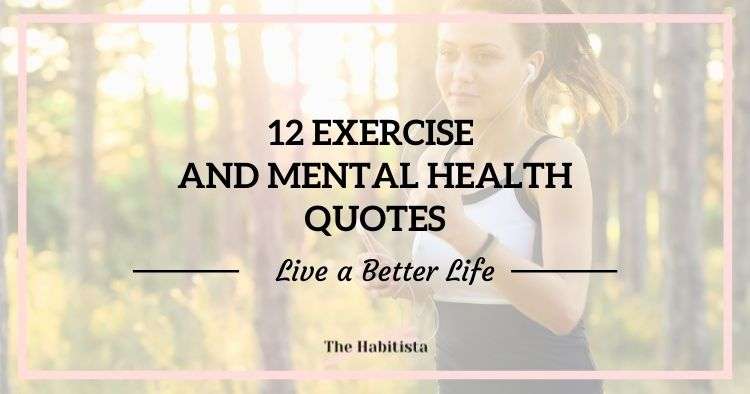Editor’s note: Information on the COVID-19 crisis is constantly changing. For the latest numbers and updates, keep checking the CDC’s website. For the most up-to-date information from Michigan Medicine, visit the hospital’s Coronavirus (COVID-19) webpage.
Music therapy is used for all types of patients and people. Songs allow you, and those around you, help to calm your nervous system, relax and heal your soul.
Music therapy is the clinical and evidence-based use of music interventions to accomplish individualized goals within a therapeutic relationship. The U-M Rogel Cancer Center has two certified music therapists: Bob Huffman and Peter Carpenter.
Huffman, who has been a music therapist at Michigan Medicine for over 15 years, feels that whether he’s working directly with a patient or in a larger setting with caregivers, family members or staff, music is healing.
“I often position my guitar so that the sound is projecting all over them, covering them with sound. I feel there is a healing through vibration happening, even though that’s a whole separate field,” said Huffman.
Music therapy involves using a person’s responses and connections to music to encourage positive changes in mood and overall well-being. Music therapy can include creating music with instruments of all types, singing, moving to music, or just listening to it.
Music has powerful effects on the mind. Different styles of music can have a significant effect on a person’s mood very quickly, and it can help them experience and process a wide range of emotions, from happiness to excitement, as well as sadness, calmness, and thoughtfulness.
Making music can also be as beneficial as listening to music, and music therapy encourages people to actively create the music they find helpful to them.
This article explains what music therapy is, how it can help improve mental health, and its effects on different mental health conditions.
What is music therapy?

Share on Pinterest
Image credit: Getty Images
Music therapy uses the powerful abilities of music to improve a person’s well-being. It is an alternative to other types of therapy, such as counseling or cognitive behavioral therapy (CBT).
Music therapists use a person’s responses and connections to music to encourage positive changes in mood and overall mental mindset. Music therapy can include listening to music or creating music with instruments of all types. It may also involve singing or moving to music.
It can help improve confidence, communication skills, independence, self-awareness and awareness of others, and concentration and attention skills.
Live musical interaction between a person and their therapist is important during music therapy.
Improvisation can also be a key part of music therapy. This involves making music up on the spot in response to a mood or a theme, such as making the sound of a storm using drums and a rainstick.
How does music therapy work?
The way that music affects the brain is very complex. All aspects of music — including pitch, tempo, and melody — are processed by different areas of the brain.
For instance, the cerebellum processes rhythm, the frontal lobes decode the emotional signals created by the music, and a small portion of the right temporal lobe helps understand pitch.
The reward center of the brain, called the nucleus accumbens, can even produce strong physical signs of pleasure, such as goosebumps, when it hears powerful music.
Music therapy can use these deep physical reactions the body has to music to help people with mental health conditions.
History and origins
Music has been a part of human life for thousands of years. Specifically, experts have found instruments dating back to over 40,000 years ago, suggesting that humans’ desire to express themselves or communicate through music is deep rooted.
The use of music for therapy and healing dates back to Ancient Greece, but its therapeutic use today began in the 20th century, after World War II had ended. The earliest reference to music therapy comes from a 1789 article called “Music physically considered.”
The 1800s saw medical research into the therapeutic nature of music grow, and by the 1940s, universities were offering music therapy programs. E. Thayer Gaston, one of three men who pioneered the use of music as a therapeutic tool, had organized and promoted the practice so that it would become an accepted type of therapy.
Now, there are many music therapy associations around the world, and music therapists work in private care, education, and social care.
Music therapy vs. other forms of therapy
Music therapy does not rely on verbal communication, so it can be better for people who struggle to communicate verbally. This could be due to a disability, a neurodegenerative condition such as dementia, an acquired brain injury, or a mental health condition.
As CBT and counseling are both talking therapies, they may not be suitable for people who find verbal communication difficult. This is where music therapy can be beneficial.
Additionally, mental health practitioners can bring music therapy directly to a person, such as if they cannot get out of bed or are unable to get to a therapist’s office. Enjoying music therapy at home can also benefit children who want to be in a familiar environment during their sessions.
This is not specific to music therapy, though, as many other types of psychotherapy can take place in the home.
The skills a person learns in music therapy can be useful in their everyday life, too. They may even take up learning an instrument as a new hobby, which they can use as a tool for improving their mental health and coping with difficult situations throughout their life.
Benefits
There are extra benefits to listening or creating music that talking therapies may not be able to offer.
For instance, learning and practicing a piece of music can improve memory skills, coordination, reading, comprehension, and math skills, and it can also give lessons in responsibility and perseverance.
People can also enjoy a great sense of achievement from creating a piece of music, which can help improve their mood and self-esteem.
Music therapy can also introduce people to many different cultures, as clients can explore any type and genre of music during therapy. Understanding the history behind a piece of music can help people connect with the music they are hearing or playing.
Although self-expression is a part of talking therapy, music therapy allows people to express themselves in a creative way, which can be a more enjoyable way of exploring difficult emotions.
Lyric analysis is another accessible way for people to explore and process difficult emotions, experiences, or memories through music.
For example, a person can find themes and meanings within lyrics and offer alternative lyrics that apply to their life and experiences, which can help them find the words that represent how they are feeling if they are finding it hard to express this themselves.
Some of the documented benefits of music therapy include:
- improved self-esteem
- decreased anxiety
- increased motivation
- successful and safe emotional release
- increased verbalization
- stronger connections with other people
How it helps with anxiety
Many studies suggest that music therapy can reduce feelings of anxiety, including in people with cancer, those undergoing surgery, and individuals going into intensive care units. Some studies also suggest that music can reduce blood pressure and the heartbeat, which can have a direct impact on how stressed a person feels.
There is also evidence to suggest that those undergoing music therapy experience reduced anxiety immediately after the session, which indicates that music therapy could be a convenient way to reduce symptoms quickly.
Music affects the amount of stress hormones, such as adrenaline and cortisol, that the body releases, and reducing these hormones can help relieve symptoms of anxiety.
How it helps with depression
Studies suggest that music therapy can improve symptoms of depression, with those undergoing music therapy along with standard treatments for depression — such as talking therapy — improving more than people who only received standard therapy.
Listening to music can also release dopamine, which is a hormone that makes people feel good, and endorphins, which are hormones that can induce happy moods and relieve pain.
Although music therapy is not a cure for depression, it can offer short-term benefits by improving mood and encouraging connection and self-expression.
In children
Some of the benefits of music therapy for children include:
- offering fun ways of expressing thoughts and feelings
- practicing social interaction and communication skills
- encouraging creative play
- improving concentration and coordination
- increasing self-awareness
- increasing awareness of other people, particularly in group music sessions
- building self-esteem and resilience
- building language and listening skills
- strengthening family relationships
Summary
Although music therapy is not a cure for any mental health condition, it can be an effective and enjoyable tool for reducing the symptoms of numerous conditions, including depression and anxiety.
Music therapy offers people a creative and accessible way of expressing their feelings and processing their experiences. People have used music for its powerful effects on mood and emotions for a long time.
Aside from helping with mental health conditions, music therapy also has numerous other benefits, such as providing a creative outlet, expanding knowledge and cultural awareness, and improving cognitive skills such as memory.
Read this article in Spanish.
If you’ve ever released stress by dancing around your room to your favorite tunes or enjoyed a good cry with the help of a touching love song, you know how powerful music can be. It can lift you up when you’re low and calm you down when you’re anxious.
Music is a powerful tool for mood regulation and stress. The best part is, it’s always available to anyone who needs it.
Benefits of Music
Whether you’re on edge or need a boost, even just one song can bring you back to a more even and healthy place. When it comes to your mental health, music can:
Help you rest better. A study involving students found that listening to relaxing classical music at bedtime improved sleep quality. This activity was also associated with decreased signs of depression.
Lift your mood. Research shows that listening to happier music can make you feel happier, especially if you try to lift your mood while listening. There’s also evidence that formal music therapy can help with depression when used alongside other therapies.
Reduce stress. If you’re feeling anxious or stressed, calming music can help to settle your mind. Several studies have shown that when people undergoing surgery hear calming music, they have lower blood pressure and need less pain medication than those who don’t listen to soothing music.
You don’t have to be preparing for surgery to calm yourself with music, though. Simply listening to music can decrease your blood pressure, lower your levels of the stress hormone cortisol, and reduce your heart rate.
Tips to Use Music to Improve Your Well-Being
Music therapists can help you find ways to use music for your mental health. This type of therapist learns how to use music-making and listening to help people understand and process their emotions. Like traditional mental health counseling, music therapy is customized to the needs of the client.
But you don’t necessarily need a therapist. You can also use music on your own to improve your mental well-being:
Listen to relaxing music. The best music for stress reduction is the kind that works for you. If you’re not sure where to start, look for music that plays at about 60 beats per minute. Researchers say that this tempo is best for encouraging the alpha brainwaves that signal a relaxed and conscious mind.



